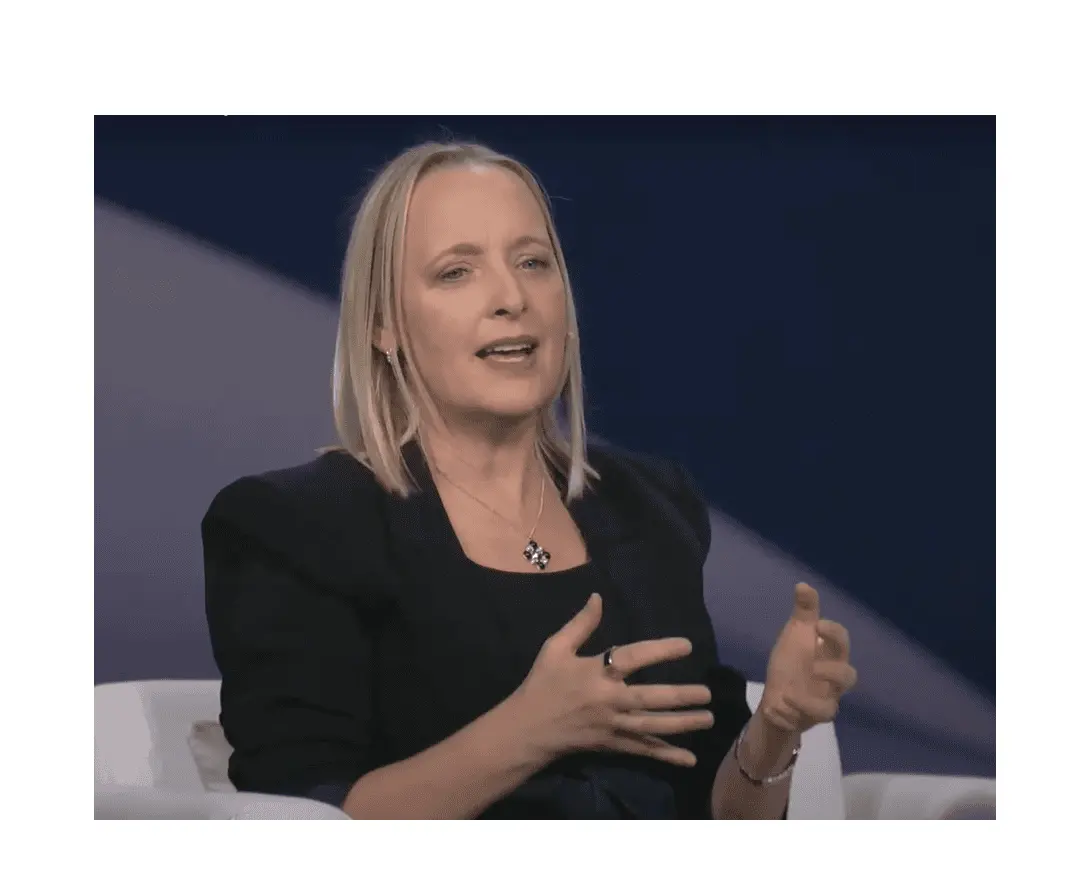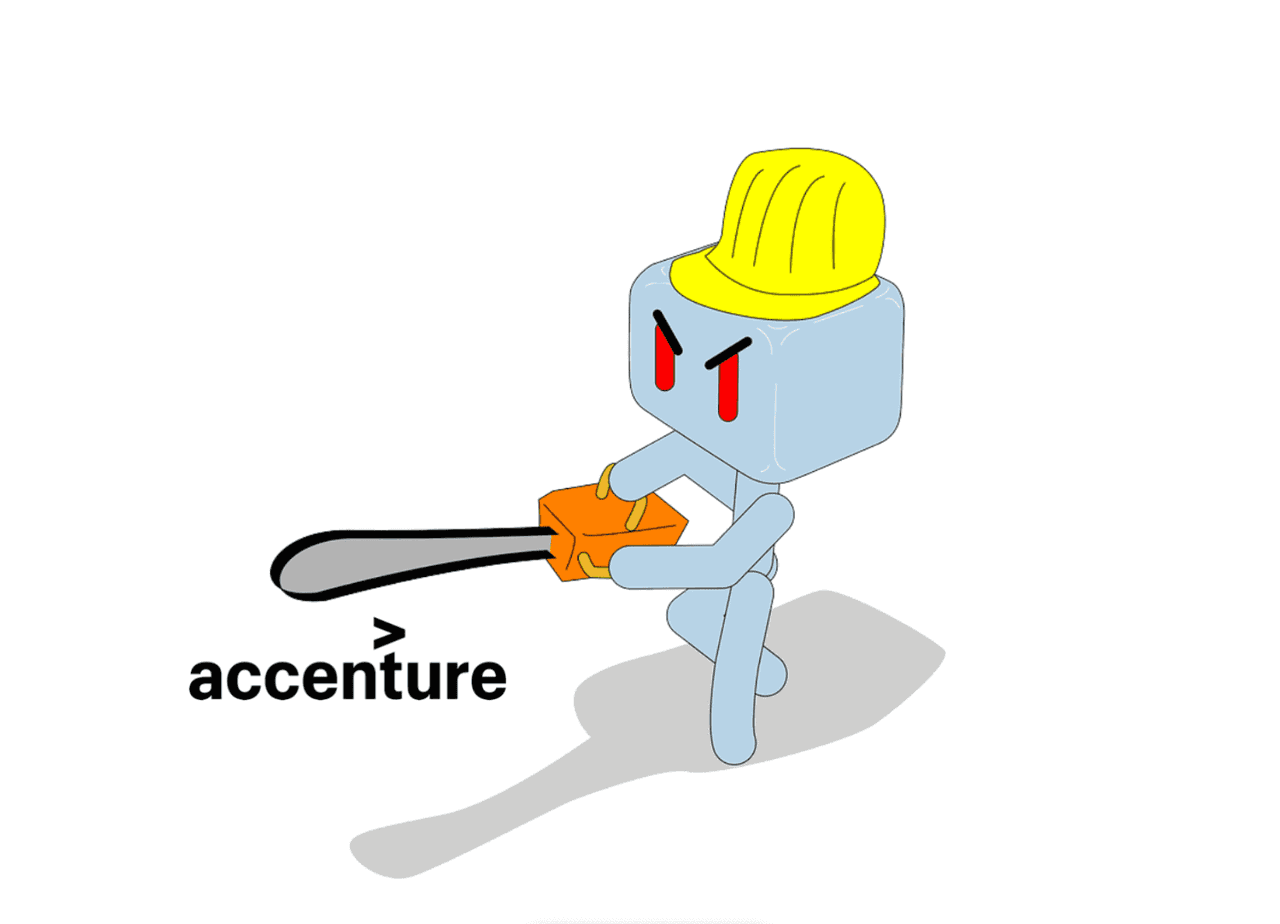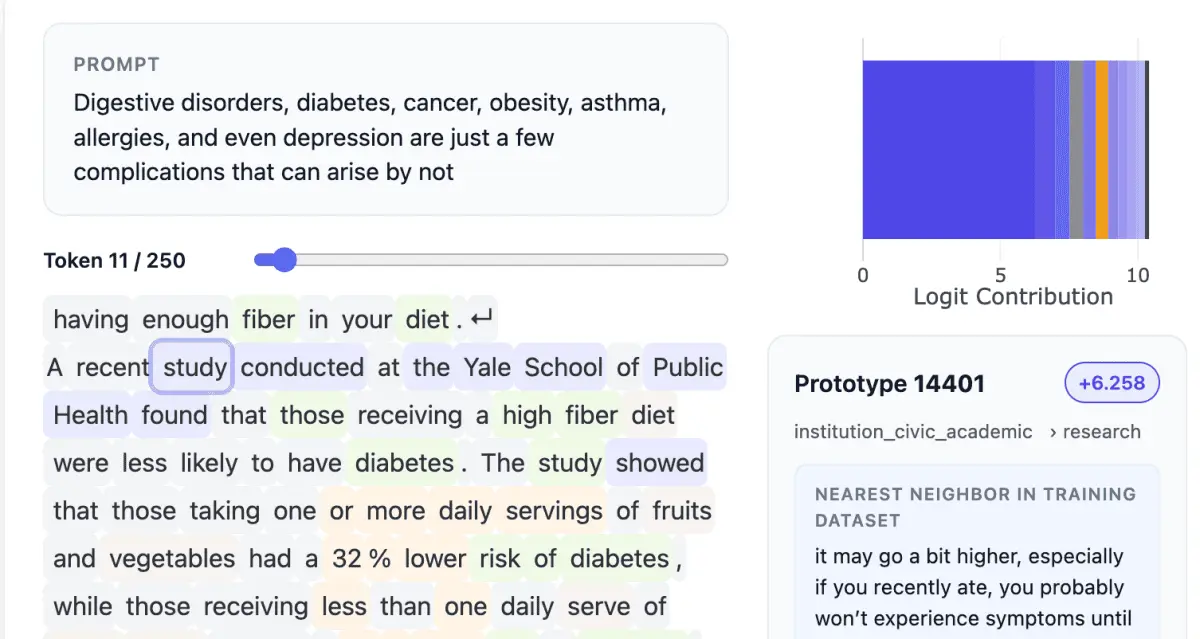Accenture's $3B AI Bet Pays Off: CEO Julie Sweet Reveals Insights on Enterprise AI Adoption
2 Sources
2 Sources
[1]
"Gen AI seems so simple, right?" Think again, advises Accenture CEO Julie Sweet
One of the most consistent things that I'm telling CEOs today is that their AI strategy has to focus on both growth and productivity. Almost every CEO that I've talked to says they pivoted way too far towards productivity and not enough to grow. An interesting comment from Julie Sweet, CEO of Accenture, a services giant that has led the way in pivoting around AI. It's working out, she argues, but it is still very early days for clients. It is "very early innings, however you look at it", she admits: We're working with companies early in their journey to use AI, which want our help to get them AI ready and to leverage our assets and platforms to accelerate their ability to deploy AI as well as to help them do what they can now to use AI even when they're not fully ready across the enterprise. We also are working with companies far along their journey to be AI ready and wanting to be the first to change the game with AI even as this potential is still emerging. The technology itself is new and rapidly changing. So across companies, they need help in understanding the tech landscape. This is where we are in age of AI, she adds: It is well recognized that advanced AI has taken the mind share of CEOs, the C-suite and Board faster than any technology development we've seen in the past 2 decades. At the same time, as reported widely, value realization has been underwhelming for many, and enterprise adoption at scale is slow other than with digital natives. Part of the problem is one of understanding and managing expectations, Sweet suggests: Gen AI seems so simple, right? And then the reality is it's not the technology that is the biggest barrier, it is actually being able to get the mindset re-organized around how best to use it, the ability to do the change management, the process reinvention. If you think about your average company, their core competencies inside are not things like end-to-end process reinvention, right? You're hard-pressed to find a CEO that doesn't say,'I feel like my organization is too siloed. I feel like we don't have the right way of managing our data' So we've had lots of clients who have started things on their own and then come to us. Such companies who seek this help have now got good proof of concept that their team was able to do, she says, but then "just can't scale it". Sweet is seeing this at first hand, she attests: Just in the next few weeks, I'm personally leading a few different workshops with the entire C-suites of companies where the focus is, 'Share with us how do we actually scale it and what can we really do now', right? We're a couple of years into this, like we have a number of solutions, which we're now doing repeatedly within industries and across industries, and our clients are looking for us to share that success so that they can stop just having their own team saying, 'Well, I have this idea, this idea', and saying, 'How can we actually get scale now?'. What Accenture brings to the debate is that it knows what Sweet calls the gap between mind share and faster actual adoption". This has come about because: The enterprise re-invention required to truly unlock the value of advance AI is hard and has significant costs. There is a huge difference between how we're all using AI in our individual lives that is incredibly easy and what it takes to use it in an enterprise. The opportunity for AI is at the intersection of business strategy and tech and org readiness. For most companies, the biggest gap between mind share and adoption is tech and org readiness. We're still in the thick of cloud, ERP and security modernization. Data preparedness is nascent at many companies and companies gravel with fragmented processes and siloed organizations. Generations of leaders need new skills to understand how AI should inform their business strategy. The workforce needs new skills to use AI and new talent strategies and related competencies must be developed. All that said, Sweet says Accenture is starting to see early signals of an inflection point. with more clients looking for true enterprise-wide plans and activation. She cites a leading energy company, which has been a client for nearly two decades, and is now looking to re-invent field operations with cloud, data and gen AI: The challenge was scale, safety, cost and sustainability, running thousands of wells with fragmented data and a leaner field workforce. We unified data from more than 25 legacy systems into a single cloud-based digital core. On top of that, we built AI-powered scaled digital twins that monitor, optimize and control the field in real time using our Accenture Industrial Intelligence Suite solution. That live view speed decisions and improved safety, often without sending a technician on-site, while emissions are continuously monitored for compliance. This solution is expected to reduce lost production by up to 2% to 4%, increase productivity by up to 28% and decreased costs by up to 22%. Field exposure and unplanned visits are also reduced and emissions are expected to be lower. People can now focus on higher value work and the business can respond faster to a changing energy landscape. We are now going to use the term 'advanced AI' as it encompasses the latest developments that are starting to gain traction. Hmmm, not sure that what the AI industry is crying out for right now is any new terminology to complicate matters any further. That said, Accenture continues to deliver strong results. For Q4, revenues of $17.6 billion were up seven percent and the same percentage for the full year fiscal 2025 to hit $69.7 billion. GAAP net income was $1.45 billion for the quarter and $7.38 billion for the full year. Generative AI projects accounted for $5.1 billon of new bookings for the full year, up from $3 billion the previous year. But there has been a price to pay. The firm has slashed its 791,000 global workforce by more than 11,000 over the past three months as part of an $865 million re-structuring initiative. And if you're an Accenture employee and you aren't able to 'get with the AI program' and be re-trained accordingly, your prospects seem pretty limited as Sweet confirms: We are exiting on a compressed timeline people where re-skilling, based on our experience, is not a viable path for the skills we need. That, it might be said, is where we are in this age of AI...
[2]
Accenture's $3B AI Bet Is Paying Off: Inside A Massive Transformation Fueled By Advanced AI
'In short, on the ground, advanced AI is becoming a part of everything we do,' says Accenture CEO Julie Sweet. 'We're reinventing what we sell, how we deliver, how we partner and how we operate Accenture.' Accenture is proving that bold bets on AI can transform not only client outcomes but the very core of its business. Just two years after committing a $3 billion multi-year investment into generative AI, Accenture has tripled its revenue with advanced AI year-over-year, reaching $2.7 billion in fiscal year 2025, with GenAI bookings nearly doubling to $5.9 billion. "These numbers only reflect revenue and bookings specifically related to advanced AI, which includes GenAI, agentic AI and physical AI," Accenture CEO Julie Sweet said on Thursday's fourth-quarter earnings call. "They don't even include data, classical AI or AI used in delivery. What we're seeing is the rise of a new category of spend." The Dublin, Ireland-based solutions provider behemoth, No. 1 on CRN's Solution Provider 500 list, prefers the term "advanced AI" to encompass emerging technologies beyond traditional data science. And it's become embedded across nearly every aspect of the company from services and platforms to internal operations and talent management. "In short, on the ground, advanced AI is becoming a part of everything we do," said Sweet. "We're reinventing what we sell, how we deliver, how we partner and how we operate Accenture." [Related: All The Accenture Acquisitions Of 2025 (So Far)] In two years, Accenture grew its AI and data employee base from 40,000 to 77,000 and delivered more than 6,000 advanced AI projects in its 2025 fiscal year. And, more than 550,000 Accenture employees have been trained in the fundamentals of GenAI. "Accenture's core competency is to train and retool at scale," she said. "Our clients cannot build all of this expertise on their own. They need us to go first and fast." And they are. According to the CEO, Accenture added 37 clients in Q4 alone, with quarterly bookings of over $100 million, bringing the total for the year to a record 129. "There is a huge difference between how we're all using AI in our individual lives and what it takes to use it in the enterprise," she said. "For most companies, the biggest gap is tech and organizational readiness. It's not the tech that's the biggest barrier, it's the mindset and the change management. Process reinvention is hard and few companies have that core competency inside." The company has seen an increase of clients move from small pilots to enterprise-wide deployments, "Our contracts are expanding. Our client relationships are compounding. This is creating a powerful, sustainable growth engine for Accenture." And while AI delivers efficiencies, those savings are being reinvested. "The list of what our clients want to do with technology is virtually unlimited," she said. "And when we help them save money through advanced AI, they use that budget to fund their next priorities. That's what's driving our seven percent growth this year." For the fourth quarter, Accenture reported new bookings of $21.3 billion, bringing total bookings for the year to $80.6 billion, including $1.8 billion in generative AI bookings for the quarter and $5.9 billion for the full year. Q4 revenue was reported at $17.6 billion, a seven percent increase in U.S. dollars. Full-year revenues grew by $4.8 billion to $69.7 billion, up seven percent. Free cash flow totaled $3.8 billion for the quarter and $10.9 billion for the year. "We've partnered with companies early in their AI journey and we're also helping digital leaders who want to be first to change the game," Sweet said. "The technology is moving fast and so are we. The demand, the skills and the impact, they're all accelerating." Sweet also spoke of President Trump's H-1B visa overhaul plans, which would tack on a $100,000 fee to every new petition, and said there would be no impact. "For us, this is really a non-issue because we only have about five percent of our people in the U.S. on H-1B visas," she said. "And they're for really specialized experience and skills for our clients."
Share
Share
Copy Link
Accenture CEO Julie Sweet discusses the challenges and opportunities of AI adoption in enterprises, highlighting the company's successful $3 billion investment in advanced AI and the complexities of implementing AI at scale.

Accenture's AI Investment Pays Off
Accenture, the global professional services giant, is reaping the rewards of its bold $3 billion multi-year investment in generative AI. The company has reported a remarkable tripling of its revenue from advanced AI year-over-year, reaching $2.7 billion in fiscal year 2025. Additionally, GenAI bookings have nearly doubled to $5.9 billion
2
.The Complexity of Enterprise AI Adoption
Despite the impressive financial results, Accenture CEO Julie Sweet emphasizes that implementing AI in enterprises is far from simple. She notes, "Gen AI seems so simple, right? And then the reality is it's not the technology that is the biggest barrier, it is actually being able to get the mindset re-organized around how best to use it, the ability to do the change management, the process reinvention"
1
.Sweet highlights the gap between the ease of using AI in personal lives and the challenges of implementing it at an enterprise level. She states, "There is a huge difference between how we're all using AI in our individual lives and what it takes to use it in the enterprise"
2
.Accenture's AI Strategy and Growth
Accenture has significantly expanded its AI capabilities, growing its AI and data employee base from 40,000 to 77,000 in just two years. The company delivered over 6,000 advanced AI projects in fiscal year 2025 and trained more than 550,000 employees in GenAI fundamentals
2
.Sweet emphasizes the importance of focusing on both growth and productivity in AI strategies. She advises, "Almost every CEO that I've talked to says they pivoted way too far towards productivity and not enough to grow"
1
.Related Stories
Challenges in Enterprise AI Adoption
The CEO identifies several key challenges in enterprise AI adoption:
- Organizational readiness and mindset
- Change management
- Process reinvention
- Data preparedness
- Fragmented processes and siloed organizations
- Need for new leadership skills
Sweet notes, "For most companies, the biggest gap between mind share and adoption is tech and org readiness"
1
.Client Success and Future Outlook
Accenture is seeing an increase in clients moving from small pilots to enterprise-wide AI deployments. The company added 37 clients in Q4 alone with quarterly bookings over $100 million, bringing the total for the year to a record 129
2
.Sweet remains optimistic about the future of AI in enterprises, stating, "The demand, the skills and the impact, they're all accelerating"
2
. As companies continue to invest in AI, Accenture is well-positioned to guide them through the complexities of implementation and help unlock the true value of advanced AI in the enterprise landscape.References
Summarized by
Navi
Related Stories
Accenture CEO Julie Sweet Emphasizes AI-Driven Reinvention for Fortune 500 Survival
31 Aug 2025•Business and Economy

Accenture's AI-Driven Restructuring: 11,000 Jobs Cut as Company Prioritizes AI Skills
26 Sept 2025•Business and Economy

Accenture's Q1 FY25 Earnings Reveal Strong Growth in Generative AI, Boosting Tech Industry Outlook
20 Dec 2024•Business and Economy

Recent Highlights
1
Google Gemini 3.1 Pro doubles reasoning score, beats rivals in key AI benchmarks
Technology

2
Pentagon Summons Anthropic CEO as $200M Contract Faces Supply Chain Risk Over AI Restrictions
Policy and Regulation

3
Canada Summons OpenAI Executives After ChatGPT User Became Mass Shooting Suspect
Policy and Regulation





